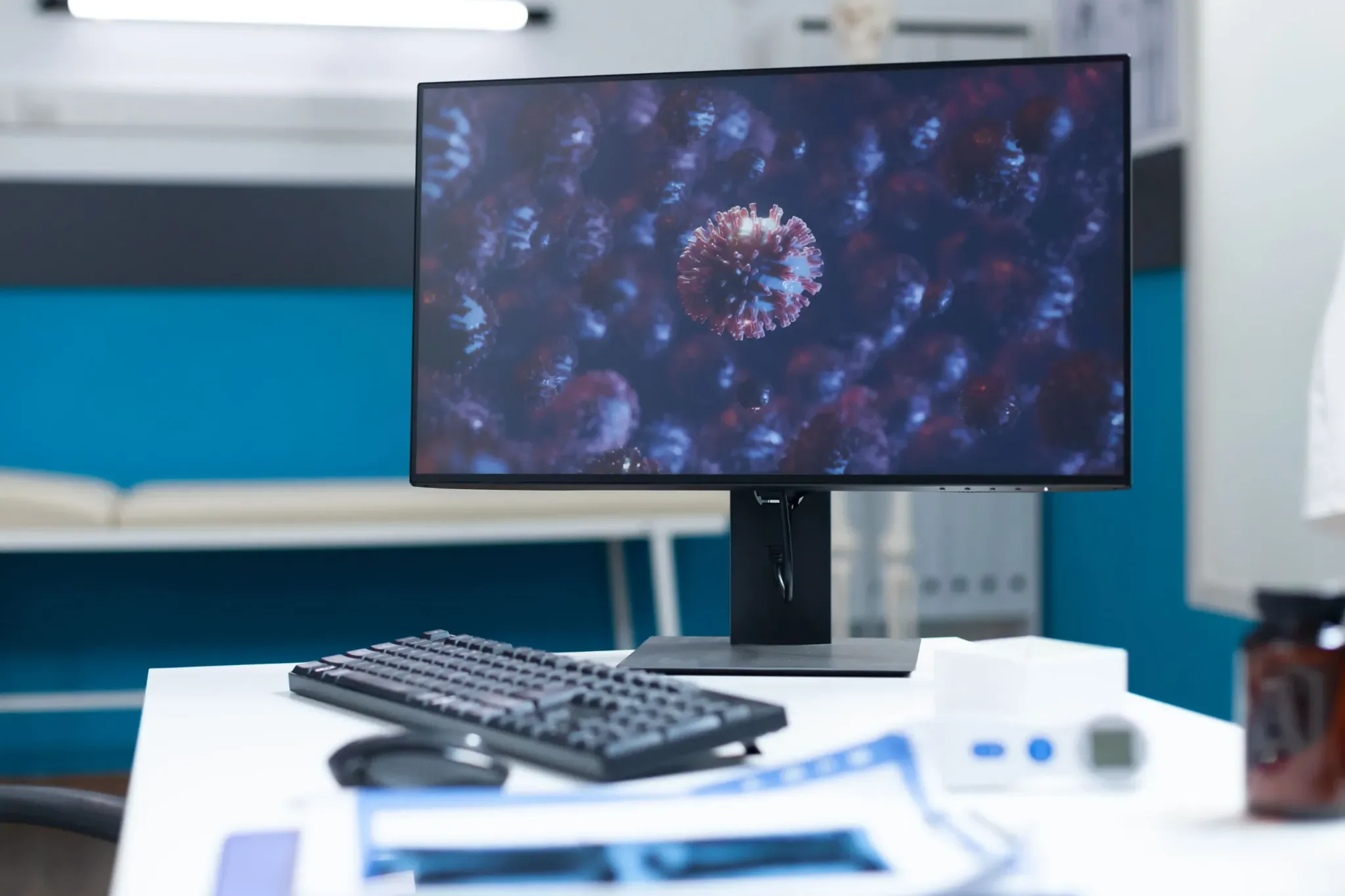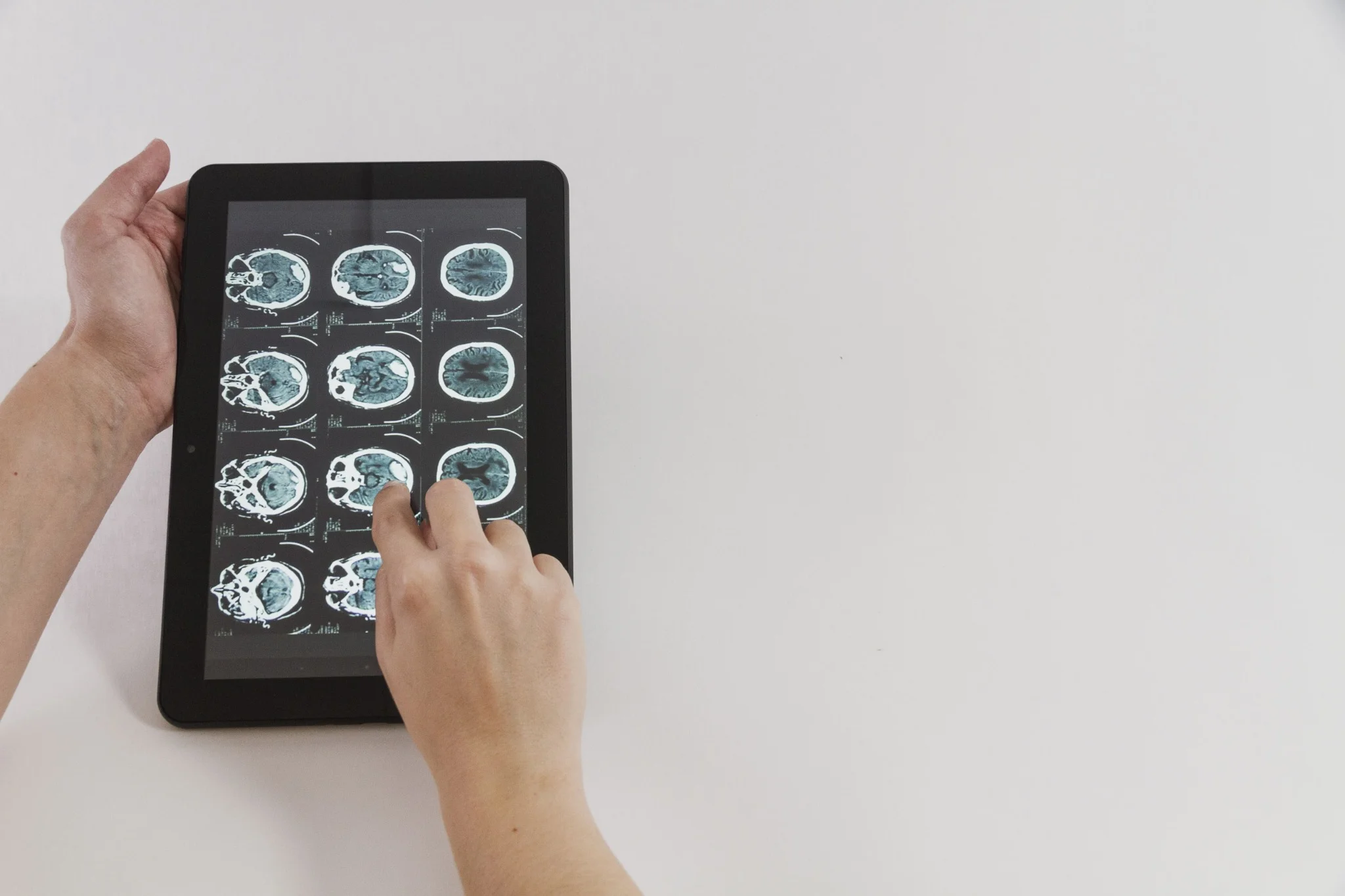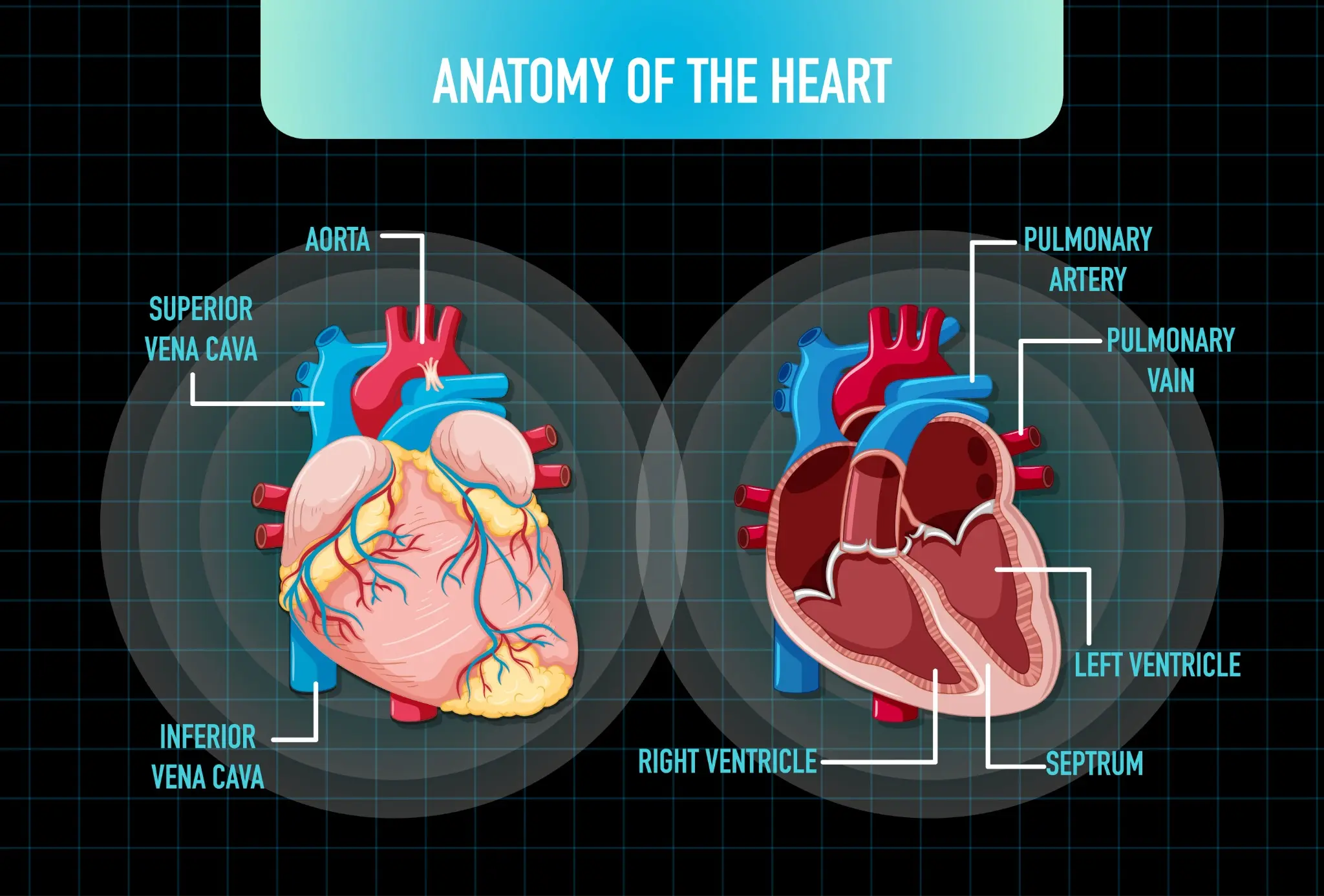Anemia Profile Test - Maxi
Anemia Profile Test - Maxi Overview
The anaemia profile test—maxi is a detailed blood test that diagnoses anaemia by assessing red blood cells, iron, vitamin B12, and folic acid levels. It identifies deficiencies or abnormalities, aiding accurate diagnosis and treatment. It’s beneficial for expectant mothers, chronic illness patients, and those with anaemia symptoms.
Decrease in hemoglobin level or number of red blood cells (RBC) leads to anaemia. This affect oxygen carrying capacity of blood to various tissues and organs. Commonest cause is nutritional deficiency of iron, vitamin B12 and folic acid
This can be due to either a lack of these substances in the diet, an increased loss that cannot be compensated by diet alone or an increased unmet demand during pregnancy and lactation.
Few of hereditary haemolytic anaemias include Hemoglobinopathies (Thalassemia's, Sickle cell anaemia etc.), enzyme deficiency disorders (G6PD deficiency).
Acquired Haemolytic Anaemias like Autoimmune Haemolytic Anaemias, Microangiopathic haemolytic anaemia are also common in Indian Population.
Common symptoms of anaemia include difficulty in fatigue, weakness, tiredness, irritability, headache, shortness of breath.
Anaemia Profile-Maxi includes both basic & specialised tests to identify anaemia and its cause
When a person's haemoglobin or red blood cells are below average, anaemia occurs. You will always feel worn out and weak if you have anaemia. There are various types of anaemia. The severity of the condition affects the symptoms. Anyone can experience mild or transient anaemia.
It can occur in people who routinely donate blood, during menstruation, or during pregnancy. Chronic renal illness, cancer, persistent inflammation, or significant blood loss from the stomach can all contribute to chronic anaemia. Anaemia is a potentially serious medical condition. It requires prompt treatment.
Anemia Profile is a blood diagnostic test. It evaluates the levels of key blood constituents. An iron shortage or a condition where the body is unable to create sufficient red blood cells to carry oxygen to every region of the body is the most typical cause of anaemia. Numerous medical disorders are brought on by this. These include weariness, wooziness, and insomnia.
The anaemia profile enables the detection of blood abnormalities and comprises the following -
- Haemoglobin.
- C-Reactive Protein.
- The packed cell volume.
- Total leukocyte count.
- Platelet Count.
- Erythrocyte sedimentation rate.
- Undeveloped granulocytes.
- The number of reticulocytes.
- Mean Corpuscular Volume.
- Mean Corpuscular Hemoglobin.
- Mean Corpuscular Hemoglobin Concentration.
- Red cell distribution width.
- Total Iron-Binding Capacity.
- Folic acid.
- Vitamin B12.
Who should do the Anemia Profile-Maxi?
The following individuals may benefit from an anaemia profile test -
- Expectant mothers.
- Women in menstruation.
- Acute blood loss brought on by an operation or an injury.
- Those who have endured a long-term illness.
- Babies and young children because of a lack of iron-rich meals.
- People with anaemia.
Written by: Dr. T Priya MBBS, DCP, MD Pathology
Reasons for Undergoing the Anaemia Profile Test—Maxi
The anaemia profile test—maxi is recommended for several groups of individuals, including:
- Expectant mothers
- Women experiencing menstrual issues
- Individuals with acute blood loss due to surgery or injury
- Those who have endured long-term illnesses
- Infants and young children with a lack of iron-rich meals
- People with symptoms of anaemia such as extreme tiredness, pale skin, shortness of breath, and others
- Patients with chronic diseases and infections
- Individuals with a family history of hereditary anaemia
List of Parameters Considered During the Anaemia Profile Test—Maxi
The anaemia profile test—maxi includes several parameters that provide a comprehensive assessment of an individual's blood composition and anaemia status:
- Haemoglobin: Key for oxygen transport; low levels suggest anaemia.
- CBC: Evaluates WBCs, RBCs, haematocrit, and platelets to assess blood health.
- MCV: Determines RBC size, aiding anaemia type diagnosis.
- MCH & MCHC: Analyse haemoglobin amount/concentration in RBCs.
- RDW: Assesses RBC size variability for anaemia diagnosis.
- TIBC & Ferritin: Evaluate iron storage and binding capacity; help diagnose iron deficiency anaemia.
- Folic Acid & B12: Measure vitamin levels linked to specific anaemia types.
- CRP & ESR: Detect inflammation or infection affecting anaemia.
- Reticulocyte Count: Tracks immature RBC levels to assess bone marrow function.
Anaemia Profile Test—Maxi Preparation
Before undergoing the anaemia profile test—maxi, the following precautions are advised:
- Fasting: You may be asked to fast for 8-12 hours before the test.
- Supplements: Avoid taking folic acid, vitamin B12, or iron supplements for 48 hours before the test.
- Biotin: Refrain from using biotin for 72 hours before the test.
- Medications and Supplements: Inform your doctor about any medications, herbs, or supplements you are taking.
Anaemia Profile Test—Maxi Results & Interpretation
The results of the anaemia profile test—maxi are interpreted based on the various parameters measured:
- Haemoglobin and Haematocrit: Low levels indicate emia. Typical adult haemoglobin values are 14-18 g/dL for men and 12-16 g/dL for women.
- Iron and TIBC: High TIBC and low ferritin levels suggest iron deficiency anemia. Low serum iron, transferrin saturation, and TIBC with high ferritin indicate chronic anaemia.
- Folic Acid and Vitamin B12: Deficiencies in these vitamins can cause macrocytic anaemia.
- Reticulocyte Count and Other Parameters: Abnormal values can indicate haemolytic anaemia, bone marrow dysfunction, or other specific conditions.
Home Collection for Anaemia Profile Test—Maxi
Metropolis Healthcare offers a convenient home sample collection service for the anaemia profile test—maxi, ensuring comfort and safety for patients. A trained phlebotomist will visit your home to collect the necessary blood samples, maintaining high standards of sample handling and testing accuracy. This service allows you to undergo the anaemia profile test—maxi without compromising on the quality of results or the need to visit a diagnostic centre. With timely and reliable results, Metropolis Healthcare's home collection service demonstrates their commitment to making healthcare accessible and providing quality diagnostic solutions conveniently at your doorstep.
Anemia Profile Test - Maxi Price
Metropolis Healthcare is a leading diagnostics centre and pathology lab in India equipped with the latest state-of-the-art technologies that provides the Anemia Profile Test - Maxi with a clear pricing structure.
The Anemia Profile Test - Maxi Price in Mumbai is ₹ 8,060 .
We are committed to deliver accurate and quality results from the best labs in India with complete transparency regarding test cost and turnaround time. No matter where you are, we strive to offer patients high-quality service that is affordable and accessible.
Frequently Asked Questions
Test is done to diagnose anaemia and to identify its causes.
It is done in people who show signs and symptoms of anaemia , who do not respond to the treatment for anaemia , in patients with family history of a hereditary anaemia , in pregnant women , in patients with chronic diseases and chronic infections
This test is conducted to determine the causes of anaemia and to diagnose it. It is carried out in individuals who exhibit anaemia's warning signs and symptoms like,
- Extreme tiredness.
- Light skin.
- Shortness of breath.
- An accelerated heartbeat.
- Chest pain.
- Headache, lightheadedness, or vertigo.
- Chilly toes and fingers.
- Inflammation of the tongue.
- Broken nails.
- Unusual desires for things like cold, dirt, or starch that are not food.
Other conditions that may entail this test include,
- Pregnancy.
- Chronic illnesses.
- Persistent infections.
- Non-response to anaemia treatment.
- Individuals with a history of anaemia in the family.
Profile includes the following group and individual test:
CBC tests for all Blood cells like RBC, WBC and Platelets , their count and morphology along with Hemoglobin level (Hb), RBC indices (MCV, MCH, MCHC, RDW) & PDW .
Serum Iron measures presence of iron in blood.
Serum transferrin measures iron transport protein transferrin.
TIBC measures Iron binding capacity to Transferrin and other proteins.
Transferrin saturation tells how much Transferrin is bound to iron.
Vitamin B12 test measures Vitamin B12 in serum.
Haemolytic Anaemias are diagnosed by tests like Haptoglobin , Osmotic Fragility , DCT, G6PD and abnormal hemoglobin studies (for hemoglobinopathies).
Reticulocyte count is useful in monitoring treatment in anaemic patients and also to know the bone marrow activity. CRP , TSH and Creatinine are essential to diagnose anaemias due to Chronic Diseases and Infections.
This test requires a blood sample. A tourniquet (elastic) band is placed tightly on the upper arm. The patient is then asked to make a fist. This helps in the build-up of blood filling the veins. The skin is disinfected before needle insertion and the blood sample is collected in vacutainer.
As per WHO , women with Hb < 12mg/dL & men with Hb <13mg/dL are considered anaemic.
In Iron deficiency anaemia Hb , serum Iron, ferritin levels, transferrin saturation are low and TIBC level is high.
In anaemia of chronic disease Hb, serum Iron, transferrin saturation ,TIBC are low with high ferritin.
Other investigations like G6PD, Haptoglobin, Osmotic Fragility, DCT are abnormal in Haemolytic Anaemia. Abnormal Hb studies can detect Sickle cell & Thalassemia.
CRP when high indicates Infection and Inflammation.
Creatinine if increased indicates abnormality in kidney function.
Men and women who have haemoglobin levels below 13 mg/dL are deemed anaemic by the WHO.
- Hb, serum iron, ferritin levels, and transferrin saturation are all low in iron deficiency anaemia, whereas TIBC values are high.
- Hb, serum Iron, transferrin saturation, and TIBC are all low with a high ferritin level in chronic anaemia.
- In hemolytic anaemia, other tests such as G6PD, haptoglobin, osmotic fragility, and DCT are abnormal. Sickle cell and thalassemia are both detectable by abnormal Hb tests.
- When CRP is elevated, infection and inflammation are indicated.
- Increased creatinine is a sign of impaired renal function.
Before the test, your doctor may advise you to adhere to the following precautions -
- 8-12 hours before the exam, you might be asked to fast.
- 48 hours before the test, avoid taking folic acid, vitamin B12, or iron supplements.
- 72 hours before the test, refrain from using biotin.
- Let your doctor know if you are using any drugs, herbs, or supplements.
Haemoglobin levels of 13.5-17.5 g/dL of blood in men and 12-15.5 g/dL in women are considered normal.
To diagnose iron deficiency anaemia, doctors may do a series of tests, monitoring different blood levels as well as indicators of other underlying conditions. These are,
- A complete blood work.
- Serum iron test.
- Ferritin test.
- Total iron binding.
- Peripheral smear.
Iron Deficiency Anemia, Macrocytic Anemia, Hemolytic Anemia, Pernicious Anemia, CBC, Reticulocyte Count, Iron, TIBC, Transferrin Saturation, Vitamin B12, CRP, Abnormal Hb Studies, Folate(Serum&RBC), Ferritin, G6PD, Haptoglobulin, Osmotic Fragility, DCT, TSH, Creatinine
The anaemia profile test-maxi is a comprehensive blood test that evaluates various parameters to diagnose and identify the underlying causes of anaemia. It includes tests for haemoglobin, iron, vitamin B12, folic acid, and other essential blood components to determine the type and severity of anaemia.
Yes, many diagnostic centres, like Metropolis Healthcare, offer home collection for the anaemia profile test - maxi. A trained phlebotomist will visit your home to collect the blood sample, ensuring convenience and comfort.
The anaemia profile test-maxi is used to diagnose anaemia, identify its underlying causes, such as nutritional deficiencies or hereditary conditions, and monitor the effectiveness of treatment.
The frequency of an anaemia profile test - maxi depends on your individual health needs and risk factors. Consult your doctor for personalised recommendations.
The anaemia profile test-maxi is usually done in the morning after fasting for 8-12 hours.
Yes, fasting for 8-12 hours is typically required before the anaemia profile test - maxi.
Avoid taking iron, vitamin B12, or folic acid supplements for 48 hours and biotin for 72 hours before the test.
The anaemia profile test - maxi includes haemoglobin, CBC, MCV, MCH, MCHC, RDW, TIBC, ferritin, folic acid, vitamin B12, CRP, ESR, and reticulocyte count.
The anaemia profile test—maxi should be done when you experience symptoms of anaemia, such as fatigue, pale skin, shortness of breath, or dizziness. It is also recommended for high-risk groups, including pregnant women, menstruating women, individuals with chronic illnesses, and those with a family history of hereditary anaemia.
The blood sample ttest—maxi—usually on for the anaemia profile test - maxi takes only a few minutes.
The turnaround time for the anaemia profile test—maxi reports are within 24 to 48 hours depending on the day/time when the sample was collected and processed. It is best to check with your chosen diagnostic centre for their specific turnaround time.
Ratings & Reviews (0)
Why Metropolis?
Metropolis has a team of 200 senior pathologists and over 2000 technicians delivering diagnostic solutions in the areas of routine, semi specialty and super specialty domains like Oncology, Neurology, Gynaecology, Nephrology and many more.
We offer a comprehensive range of 4000+ clinical laboratory tests and profiles, which are used for prediction, early detection, diagnostic screening, confirmation and/or monitoring of the disease.





















 WhatsApp
WhatsApp